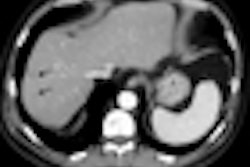Advances in chemotherapy, biological agents, and liver resection techniques have led to a dramatic increase in survival for patients with metastatic colorectal cancer, according to researchers at M. D. Anderson Cancer Center at the University of Texas in Houston and the Mayo Clinic in Rochester, MN.
A study in today's Journal of Clinical Oncology reports that median survival for patients with metastatic colon cancer has grown to more than 30 months, compared to just eight months for patients diagnosed before 1990.
A research team led by Dr. Scott Kopetz of M. D. Anderson retrospectively identified 2,470 newly diagnosed metastatic colorectal cancer patients who were treated at M. D. Anderson (n = 1,614 patients) and the Mayo Clinic (n = 856 patients) between 1990 and 2006. Of the 2,470 patients, 231 underwent hepatic resection, with the surgical procedure being preformed more frequently after 2000.
No significant change in overall survival was found for patients diagnosed between 1990 and 1997, with a median survival range of 14.2 months. However, survival rates began to increase thereafter: The median overall survival rate was 18 months for those diagnosed between 1998 and 2000, 18.6 months between 2001 and 2003, and 29.2 months between 2004 and 2006. The corresponding five-year survival also increased from 9.1% (diagnosed 1990-1997) to 13% (diagnosed 1998-2000) to 19.2% (diagnosed 2001-2003).
What's more, the five-year survival rate for patients diagnosed between 2004 and 2006 is projected to increase to more than 30%, the authors added.
A comparison of the findings with data from 49,459 patients in the National Cancer Institute's (NCI) Surveillance, Epidemiology, and End Results (SEER) registry showed evidence of similar improvements in survival, the researchers found.
"We found not only a significant improvement in overall survival for metastatic colorectal cancer patients, but we also demonstrated that the degree and rapidity of the improvement is of a magnitude that is rarely seen in metastatic cancers," Kopetz said. "Many of these patients are not necessarily disease-free, but living with their cancer with a high quality of life. For some patients, our goal of making metastatic colorectal cancer a chronic condition is closer to becoming a reality."
Related Reading
Osteopontin expression predicts colon cancer survival, November 8, 2007
Socioeconomics, treatment largely explain racial gap in colon cancer survival, April 24, 2007
Copyright © 2009 AuntMinnie.com




















